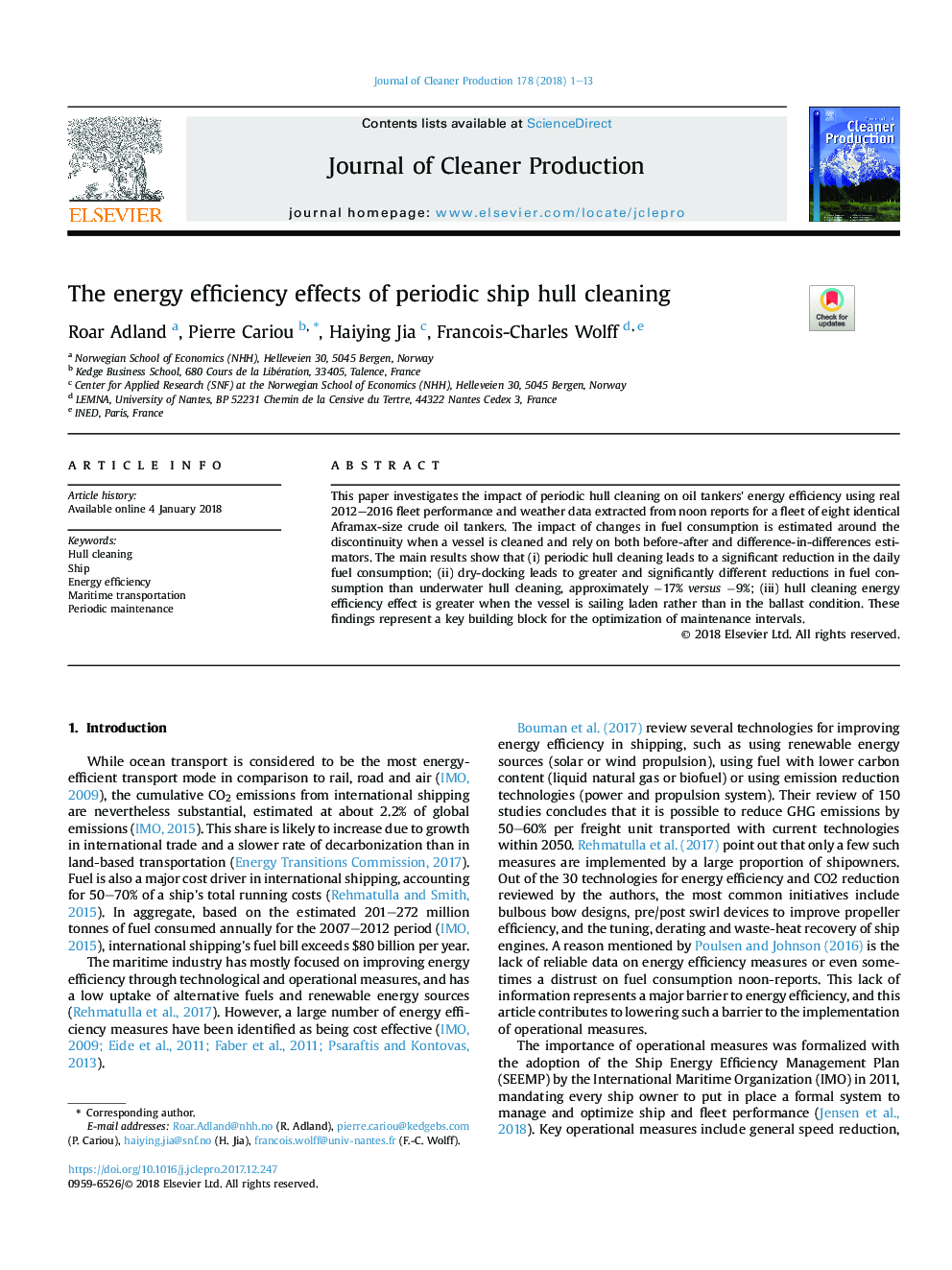| Article ID | Journal | Published Year | Pages | File Type |
|---|---|---|---|---|
| 8098316 | Journal of Cleaner Production | 2018 | 13 Pages |
Abstract
This paper investigates the impact of periodic hull cleaning on oil tankers' energy efficiency using real 2012-2016 fleet performance and weather data extracted from noon reports for a fleet of eight identical Aframax-size crude oil tankers. The impact of changes in fuel consumption is estimated around the discontinuity when a vessel is cleaned and rely on both before-after and difference-in-differences estimators. The main results show that (i) periodic hull cleaning leads to a significant reduction in the daily fuel consumption; (ii) dry-docking leads to greater and significantly different reductions in fuel consumption than underwater hull cleaning, approximately â17% versus â9%; (iii) hull cleaning energy efficiency effect is greater when the vessel is sailing laden rather than in the ballast condition. These findings represent a key building block for the optimization of maintenance intervals.
Related Topics
Physical Sciences and Engineering
Energy
Renewable Energy, Sustainability and the Environment
Authors
Roar Adland, Pierre Cariou, Haiying Jia, Francois-Charles Wolff,
